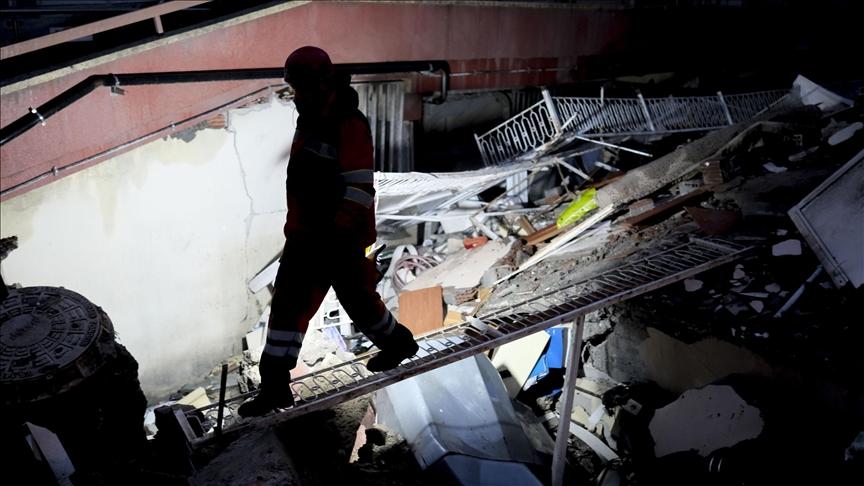BY ZEYNEP GURCANLI
The recent earthquakes, which hit Turkey and the north of Syria, mobilized the international arena. More than 90 countries offered aid to Turkey. Some of them sent search and rescue teams, some provided cash or in-kind aid. The solidarity campaign with Turkey, which emerged globally after the earthquake, was also reflected in Turkish foreign policy.
With Greece, just like after the 1999 Marmara Earthquake, trenchant words were left aside. Greek Foreign Minister Nikos Dendias, who came to Turkey right after the Greek aid team, was given a tour around the earthquake zones by his Turkish counterpart Mevlut Cavusoglu personally. Friendship messages towards Turkey from Greece, not only from politicians but also from the media, Turkish songs broadcast on television, and newspapers with Turkish headlines followed one another.
Another sign of softening came with Armenia with which Turkey has no official diplomatic relations. The border crossing between the two countries, which had never been opened, was opened for the first time in order for the aid of Armenia to reach Turkey. Considering that the contacts with Armenia for the normalization of relations had already started before the earthquake, it will not be a surprise to anyone that the border gate will be opened in the near future, never to be closed again.
The international aid mobilization also opened some diplomatic channels in Turkish foreign policy. However, there is still much to be done to widen this opening even further.
NORMALIZATION WITH ARMENIA
The closed Turkey-Armenia border gate was opened by making an exception for the aid of the Armenian people. However, it is a fact that there are some steps that should be taken by Yerevan in order for this exception to turn into a full opening of the border.
One of the biggest reasons for the lack of diplomatic relations between Turkey and Armenia and the closed border was the Azerbaijani lands under Armenian occupation.
This issue was largely overcome when Azerbaijan liberated the lands around Nagorno-Karabakh in 2020. But this is not enough alone. There are also bilateral issues between Ankara and Yerevan. For example, Armenia has not officially recognized the territorial integrity of Turkey yet. This is a fact that reveals Armenia’s land demands from history are still on the table.
However, if the process that started with the earthquake aid and continued with the visit of the Armenian Foreign Minister to Ankara and the earthquake region can help Yerevan take a step, the normalization process of relations can be accelerated. Moreover, there are signs that Armenia may take these steps.
It is no secret that the government headed by Prime Minister Pashinyan wants to reduce the Russian influence on Armenia as much as possible and to get closer to the European Union (EU). Delegations from the EU that started to go to Yerevan also reveal that the same view is held in Europe. Normalization with Turkey will facilitate the work of both Yerevan and Ankara in relations with Europe.
HOW WILL THE RELATIONS WITH GREECE DEVELOP?
A similar process is experienced with Greece. The understanding brought by the earthquake aid seems to put a barrier in front of the rhetoric that will be hardened for the sake of the vote during the election processes both countries are entering. This could be the precursor to a new dialogue process after the elections in Greece and Turkey. There is no hesitation that this softening in Athens-Ankara relations will be a very useful factor for Turkey’s post-election relations with the EU.
And of course, there is the visa facilitation mobilization for earthquake victims by some EU countries where Turks live. Belgium and Germany announced that the visa review period of up to three months for Turkish citizens will be reduced to a few weeks for earthquake victims. Although it is very difficult in practice to collect the official documents, including passports, which the EU requires for visas, for earthquake victims who have lost their relatives, homes, and belongings, this approach looks like a sign that the EU may revise the visa liberalization process for Turkish citizens after the elections in Turkey.
The conditions set by the EU for the collective visa liberalization for Turkish citizens are obvious. Of course, one of the most difficult of these is the definition of terrorism and the adaptation of the anti-terror law to the EU standard. But, who knows, the environment that will emerge after the elections in Turkey may pave the way for this too…










